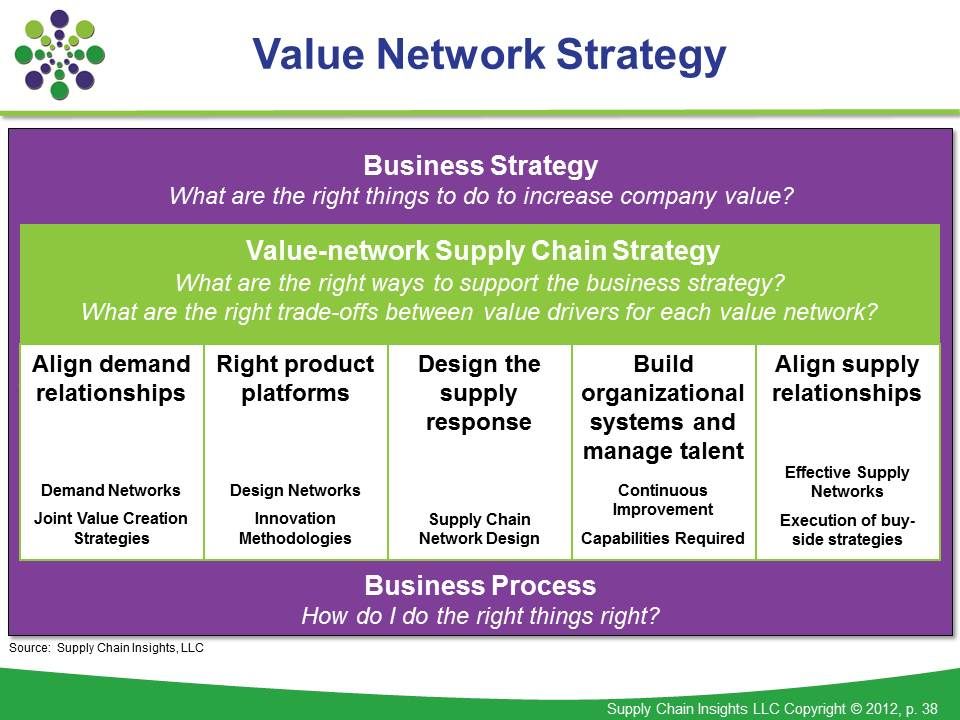Introverts at work
An Introvert’s Guide to Surviving on the Job - Guides
By Morra Aarons-Mele
Illustrations by Molly Fairhurst
It’s tough to be an introvert in a world that equates success with performing. Here's how to change the way you work while staying true to you.
Introduction
I’m an ambitious overachiever. I’m also an extreme introvert. I want a career that matters, but my ideal day involves interacting with as few people as possible, avoiding fluorescent lights, and lots of quiet time. Those days are tough to create if you want a big career.
We live in a culture that equates leadership and ambition with extroversion and being present. That can be difficult for introverts, who may excel at work but struggle with office politics, long hours of being “on,” and overstimulation from noise, light and people in our personal space. The answer is not in giving up — it’s in changing how we work.
Are You an Introvert?
Introverts come in all shapes and sizes: Some are shy and avoid being out there. Some love to perform, and need quiet time to regenerate after. (Amy Schumer and Oprah both consider themselves introverts.) Others may fear situations in which they have to interact with people they don’t know or address a crowd.
But the stimulation of a busy office environment and a tightly packed workday drains all introverts. We need quiet, regenerative time. We need to feel control over our space, pace and place of work.
If you’re not sure if you’re an introvert, ask yourself the following questions: Do you feel replenished by being alone? Given the chance, would you spend a chunk of your workday in quiet instead of surrounded by co-workers in a buzzy office? If the answer is yes, then you’re probably an introvert. That’s not a bad thing — but it may mean creating success on your own terms.
Read more about being an introvert
Know Your Boundaries and Set Limits
Boundaries are important when it comes to maintaining a healthy relationship with your work. This is true for anyone, but especially introverts. As an introvert, you may feel triggered by sitting through too many meetings without a break, a lack of physical space or privacy, bright lights, loud noise or work demands that invade your personal time at night and on weekends. To find your boundaries — and set limits — try answering the following questions:
This is true for anyone, but especially introverts. As an introvert, you may feel triggered by sitting through too many meetings without a break, a lack of physical space or privacy, bright lights, loud noise or work demands that invade your personal time at night and on weekends. To find your boundaries — and set limits — try answering the following questions:
- When in the day do you feel most productive and at what time of day are you just done?
- Do you work on weekends? Do you feel resentful, or that you’re finally getting a chance to catch up in peace?
- What distracts you, and in what space do you feel no distraction?
- If you’re in a noisy coffee shop or a brightly lit environment, how do you feel?
- Do you get more work done around people or alone? When do colleagues inspire you and when do you just need to be alone?
- If you could design your ideal week, what would your schedule look like?
- What other things about your work environment send you over the edge?
Now that you know your limits, we can work to create boundaries that you ensure you don’t constantly test them.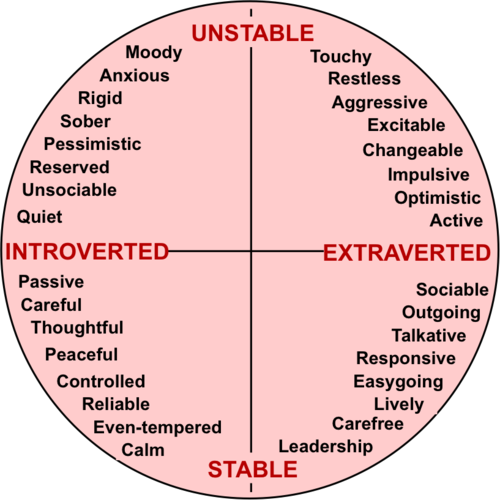 One of the most effective ways of doing this that I’ve found is what I call “Pace, Place, Space.” It goes like this:
One of the most effective ways of doing this that I’ve found is what I call “Pace, Place, Space.” It goes like this:
- Adjust your pace. There is no law that says we have to work eight hours straight every day. Maybe you can “chunk” your time: An ideal week would have you tightly scheduled for two days, followed by a quiet day with less face-to-face time. Or you may prefer an intense 9-5 day, with no logging on at night. Think strategically about your schedule and how you can make it work for you. Can you limit your interaction with Slack to a few minutes a day? Block out time in your calendar for quiet work?
- Rethink your place. It may be possible to move around throughout the day in search of quiet. Could you adapt your desk or sit in a different spot so you feel you have more privacy? Can you take a walk, head to a favorite coffee shop or even hide in the bathroom for a few minutes to catch your breath? You can also think about reducing noise, light and overstimulation.
 Many people use noise-canceling headphones as a way of creating some separation from their present space. Lighting is also key: Can you turn off the fluorescents in your area or adjust the lighting so it is less jarring? If Slack or another messaging service begins to overwhelm you, turn it off, or snooze your notifications for extended periods. For many of us, these things might require a conversation with a manager. If so, Cali Williams Yost, a workplace expert and the author of “Work + Life: Finding the Fit That’s Right for You,” suggests the following script:
Many people use noise-canceling headphones as a way of creating some separation from their present space. Lighting is also key: Can you turn off the fluorescents in your area or adjust the lighting so it is less jarring? If Slack or another messaging service begins to overwhelm you, turn it off, or snooze your notifications for extended periods. For many of us, these things might require a conversation with a manager. If so, Cali Williams Yost, a workplace expert and the author of “Work + Life: Finding the Fit That’s Right for You,” suggests the following script:
“I'm more productive if I get chunks of time where I can just focus. Here’s how it’s going to help [explain here], here's how I'm going to do it [explain how you’ll make it happen], and here's how people can reach me if you need me [email or phone].”
- Create personal space. Many introverts don’t mind being accessible by email or text as long as they can control where they are when responding in their off time.
 Others find off-hours communication and an expectation of instant responsiveness extremely jarring. Setting limits is the key here — whether it be limiting in-person interaction by reminding your colleagues of your off hours, telling someone you need personal space, or discouraging co-workers from dropping by to chat by wearing headphones.
Others find off-hours communication and an expectation of instant responsiveness extremely jarring. Setting limits is the key here — whether it be limiting in-person interaction by reminding your colleagues of your off hours, telling someone you need personal space, or discouraging co-workers from dropping by to chat by wearing headphones.
Make the Most of Meetings
Whether you’re a restaurant server or an office manager, you’ll likely have to attend a meeting or two. Meetings can be challenging for introverts, who may struggle to get their points heard or find it draining to sit in brainstorming sessions dominated by a loud few. The good news is there are tricks that can make meetings work for you.
- Sit at the table. Establish that you’re in the room and resist the urge to shrink into the background. I like Jill Flynn’s advice: Arrive early, take a prominent seat and lean into the table talk, even if it’s painful. It’s only for a few minutes.
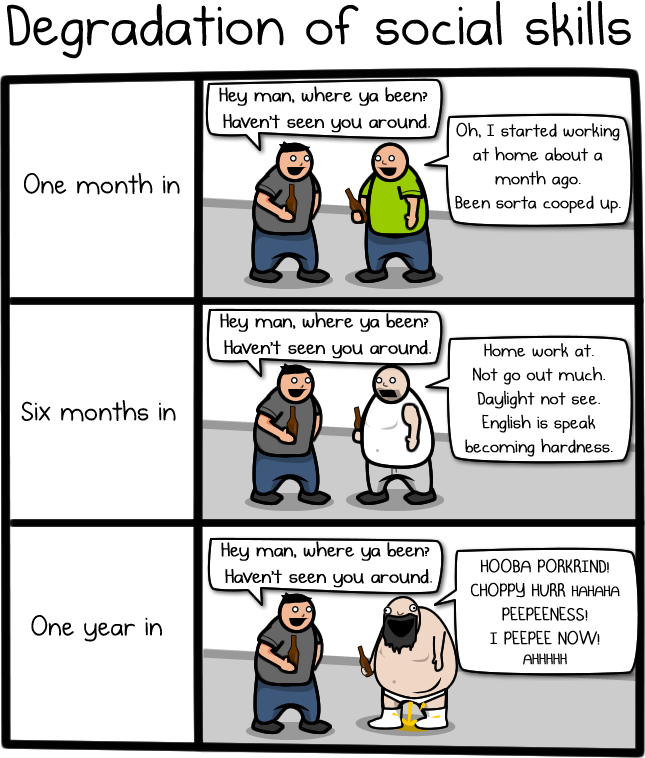 When the meeting is in full swing, offer your thoughts in a succinct and pointed way and deliver the words with authority. Here’s the key: Practice delivering an observation that sounds casual and impromptu. Even processing the conversation and offering a verbal summary to the room is a powerful way of being heard.
When the meeting is in full swing, offer your thoughts in a succinct and pointed way and deliver the words with authority. Here’s the key: Practice delivering an observation that sounds casual and impromptu. Even processing the conversation and offering a verbal summary to the room is a powerful way of being heard. - Follow up. If you feel put on the spot to speak and you’re not ready to offer an opinion, say, “I need to think that over. Can I get back to you?” Then write something brilliant to email later. You’ll get the last word.
- Talk early, not often. Speaking early in a meeting, even by offering a fairly banal statement, establishes your presence in the room. It can also take the pressure off so you can listen to the discussion without worrying about trying to say something smart.
- Pre-meet. Ms. Flynn recommends mastering “the meeting before the meeting.” Be prepared and check in with stakeholders so you know the agenda and the expected outcomes.
 Make your opinion known to the meeting leader beforehand, so it’s easier to get heard in the actual meeting.
Make your opinion known to the meeting leader beforehand, so it’s easier to get heard in the actual meeting.
It’s tough to be an introvert in a world that equates success with performing. But if you consider the leaders who have made an impression on you, I’d bet they don’t have a single character trait in common. Except, likely, embracing their own authentic style.
Through trial and error, I’ve learned to play to my strengths and nourish my introversion, focusing less on the long-term outcome of “success” and more on the everyday.
Remember: It’s O.K. to own your boundaries and claim your personal style. Leave the party early. Turn off the lights. Be alone and be happy.
Read more for smart work strategies
What Introverts Want Extroverts To Know About Workplace Collaboration
We all know the stereotypes about introverts and extroverts. While wildly exaggerated, introverts are often viewed as shy, timid bookworms who avoid parties like the plague, while extroverts are seen as outgoing social butterflies who dominate conversations and never seem to slow down.
Real people are much more complicated than these over-the-top clichés. But introversion and extroversion are real—there’s science to back it up. Introverts and extroverts have their own unique strengths, but the problem is that most workplaces are designed for extroverts, rewarding the social, high-energy behaviors on which they thrive.
In or out of the workplace, cooperation and communication are challenging—especially for people with very different personalities. Extroverts might be used to the spotlight, but if they take the time to understand and support their introverted colleagues, they’ll discover many wonderful qualities that make them valuable members of a team.
In this article, we’ll break down what you need to know about introverts, what they need in the workplace, and how us extroverts can best support them—so we can all work together to accomplish amazing things.
What Makes an Introvert, Introverted?To collaborate better with our introverted colleagues, let’s start by understanding them!
Overall, introverts prefer less stimulating environments and have less of a need for social interaction. They seek out solitude, and tend to maintain fewer (but still close and intimate) personal relationships. Unlike people who are shy or struggle with social anxiety, introverts don’t fear social interaction—they just don’t react to it in the same way that extroverts do.
They seek out solitude, and tend to maintain fewer (but still close and intimate) personal relationships. Unlike people who are shy or struggle with social anxiety, introverts don’t fear social interaction—they just don’t react to it in the same way that extroverts do.
This isn’t a question of personal preference. Introverts’ and extroverts’ brains are actually different, both in how they’re built and how they behave.
Introverts’ brains show higher cortical arousal, meaning that they process more sensory information from their surroundings. They’re very perceptive, and more sensitive to details about their environment like color, light, and background noise. This is why introverts can become overwhelmed by high-activity settings and social situations—for them, it’s information overload.
Introverts’ brains also don’t respond to other people like extroverts’ do. In one study, introverts reacted to pictures of human faces and flowers in a similar way, while extroverts had a much stronger, positive response to images of people.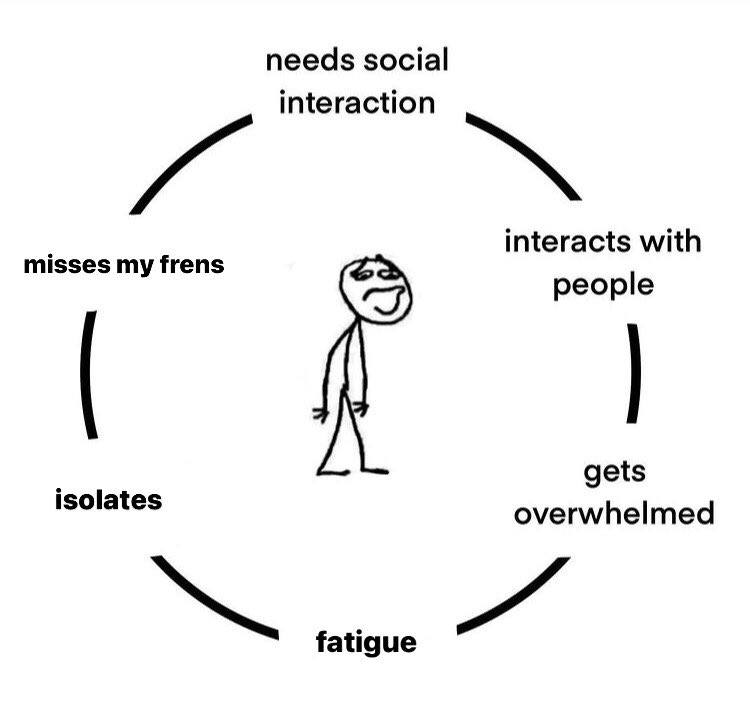
There are also vast differences in the situations and activities that each type pulls energy from. For example, extroverts often feel energized in environments full of people and stimulation, while introverts leave those same scenarios feeling depleted. Instead, introverts often need the absence of stimulation in order to recharge.
There are also physical differences between extroverts’ and introverts’ brains. Specifically, introverts have more gray matter in their prefrontal cortex, the part of the brain that handles abstract thought and decision-making. This could give introverts an advantage at writing, a key component of which is processing abstract thought.
What Do Introverts Need In The Workplace?It’s one thing to understand introverts better—but how can you apply this knowledge to the workplace? Let’s start by explaining introverts’ general workplace needs.
Privacy And DowntimeBecause introverts can become overwhelmed by social interaction (and stimulation in general), it’s very important for them to take time out of their day to recharge in calm, low-stimulating environments. For example, your introverted colleague might put on headphones and sit alone at lunch, go for a walk with their coffee solo, or share less dog memes on the company Slack channel.
For example, your introverted colleague might put on headphones and sit alone at lunch, go for a walk with their coffee solo, or share less dog memes on the company Slack channel.
This doesn’t mean your colleague hates you, hates their job, or is antisocial. If you’re an extrovert, you might be tempted to try and include your introverted coworker by inviting them to sit with you, tagging them in that meme, or joining them on their walk. Your intentions are good—you’re trying to do for your coworker what you know would cheer you up. But spending time alone doesn't mean an introvert is unhappy. In fact, it’s quite the opposite—they’re practicing self-care. By taking some time out, they’re giving themselves what they need to feel happy and calm at work.
Peace And QuietThe science is clear—distracting background noise is bad for everyone’s productivity. But it can be particularly hard for introverts because they’re so closely attuned to their environment.
To do their best work, introverts often need a calm, peaceful workspace that’s free of distractions. These can include music, radio, sounds coming from a colleague’s phone or computer, and the biggest productivity killer of all: intermittent speech, or short, irregular bits of conversation.
Unfortunately, these are very common types of background noise in a typical office—and extroverts are often the culprits (sorry to call you out like that).
One major advantage of remote work is the control it gives people over their environment, meaning this should be less of an issue on a distributed team. But regardless of how you’re working, if you want to support your introverted teammate, respecting their need for quiet is a good place to start.
Time To ThinkPutting an introvert on the spot is not the answer! As we explained above, introverts process a higher volume of sensory information per second than extroverts do. This is why they can come across as quiet—they need time to respond to their surroundings and get their thoughts in order before speaking.
Don’t try to bring your introverted colleague out of their shell by singling them out in meetings, or springing last-minute plans on them unannounced. They may not feel ready to respond under those circumstances, and may feel pressured or stressed-out.
That doesn’t mean you shouldn’t give introverts opportunities to share. In fact, you’ll miss out on thoughtful, deeply considered insights if you don’t create space for their contributions.
Before expecting introverts to speak up or interact with others, make sure they have enough of time to prepare themselves and think through what they’re going to say. We’ll go over some more specific strategies in the next section.
Permission To Be ThemselvesFinally, introverts must be able to be themselves in the workplace without feeling judged. Really, this is true for everyone—but it’s especially relevant to introverts, because many workplaces are designed around extroversion.
No one wants to feel like the “office odd one out” because they like to eat lunch alone, or worry that their manager thinks they aren’t paying attention if they don’t speak up as often in meetings. When teammates and managers trust that introverts aren’t timid, uninformed, or antisocial, they set the stage for them to shine as brilliant, valuable members of their team.
When teammates and managers trust that introverts aren’t timid, uninformed, or antisocial, they set the stage for them to shine as brilliant, valuable members of their team.
Quiet, downtime, personal space—these all sound like reasonable requests. But what do they look like in action? Here are some ways to make workplaces a little more welcoming to your introverted team members.
Introvert-Friendly MeetingsMeetings center around social interaction, they can pop up unannounced, and the goal is often fast, intuitive collaboration—for many introverts, they’re the most challenging part of their workday.
But with some consideration, it is possible to make meetings more productive and comfortable for introverts.
Start by planning meetings well in advance, rather than springing them on anyone at the last minute. When you schedule the meeting, make sure it has a clear agenda and share it with everyone in writing, along with any relevant documents or reading that will be discussed.
Dedicate time at the end of the meeting to hear from everyone who hasn’t spoken, so that introverts don’t need to try to get a word in around their extroverted colleagues.
This approach gives introverts time to get a handle on what will be discussed and prepare themselves so they don’t get overwhelmed in the moment. Because they know they’ll have a chance to contribute, they can carefully prepare some thoughts and trust that they will be heard. Being able to plan ahead for social interaction also makes it easier for them to schedule a buffer of quiet time afterwards to unwind.
Workspaces That Work For EveryoneThere are many ways to make sure your workspace supports the kind of quiet and downtime introverts crave, but still feels comfortable for the extroverted members of your team.
The most obvious technique is to create designated quiet spaces within a physical office. This could look like a separate area of the break room that’s intended for quiet relaxation rather than socializing, or setting up workstations that are more separated from the rest of the space.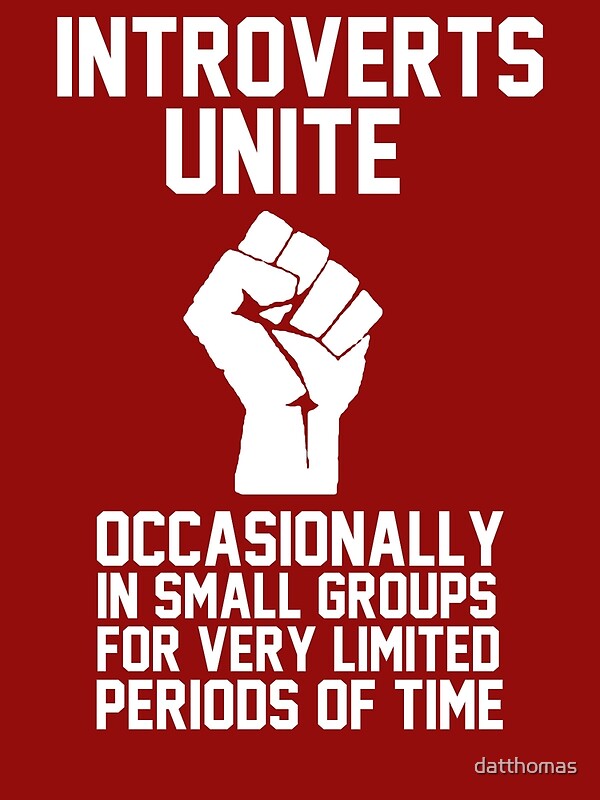
But changing up the design of your office is a pretty big task—and what happens if you’re working remotely? Luckily, there are plenty of other ways to create privacy, and they don’t need to be elaborate or expensive.
For example, you and your introverted colleague could agree on a cue that they need space, such as “if I’m wearing my noise-cancelling headphones, that means I need uninterrupted time to myself” or “I will set my Slack mode to ‘away’ when I need to focus.”
You could also ask your manager about blocking out times during which everyone will work more quietly. In particular, limiting when meetings are held, such as keeping them to the afternoons, or even designating one full meeting-less day during the week, can go a long way towards getting introverts the peace they need to recharge. And who knows, the rest of your team might enjoy it, too!
Communicating With Introverts (Quietly)Written communication is great for introverts.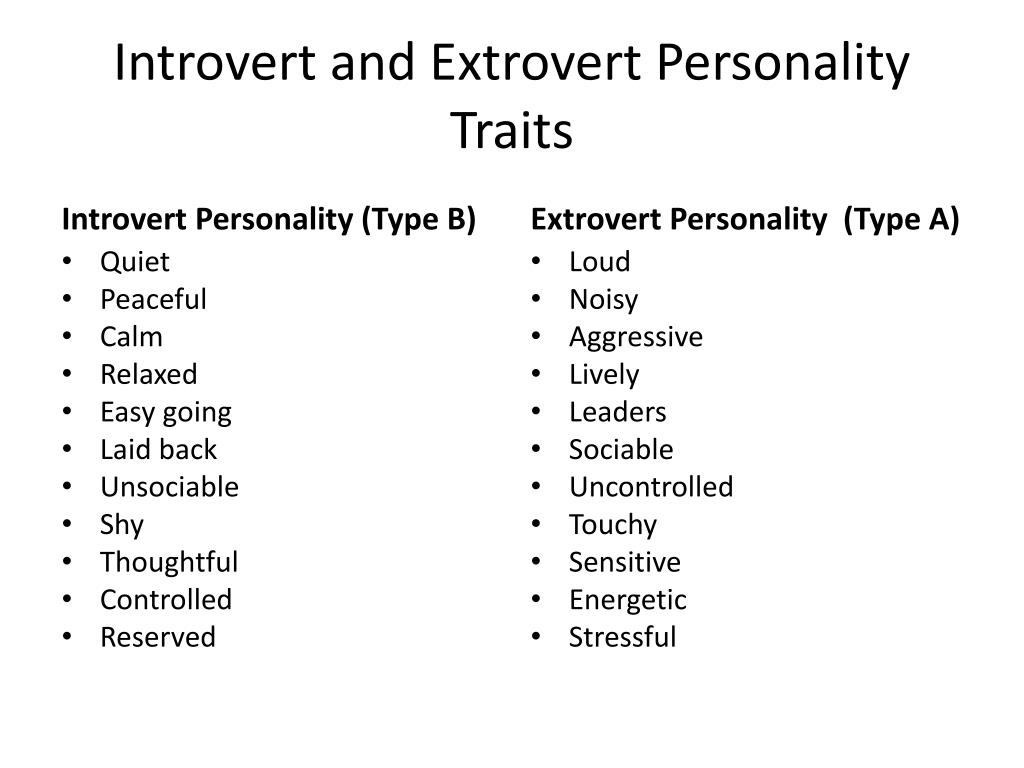 Not only do they tend to express themselves better this way, but it gives them time to think without being put on the spot.
Not only do they tend to express themselves better this way, but it gives them time to think without being put on the spot.
Of course, introverts are individuals, and they don’t all have the same preferences. But it’s worth asking your introverted colleague if they’d prefer to communicate in writing, such as by Slack or email. This might prove less disruptive or draining to their workflow than phone calls, unprompted conversations, or popping into their office unannounced.
Brainstorming is another activity that should be approached mindfully for introverts at work. Competing with other voices and calling out ideas in a stream-of-consciousness way is pretty much the opposite of how introverts like to communicate. And as common as brainstorming is for many workplaces, it might not even be the best way to get good ideas out of your team!
Instead, try ‘brainwriting’ or ‘electronic brainstorming.’ These techniques allow people to contribute anonymously in writing, so they put much less pressure on introverts than typical brainstorming sessions.
If introverts have flexibility around their working conditions and schedule, it’s easier for them to create the conditions that will let them do their best work.
Flexibility is good for many workers, but it might require a higher degree of trust from an introvert’s teammates and managers. That’s because their ideal working conditions might involve working from home more often, working with less supervision (such as coming in early or staying late), or even opting for an asynchronous meeting every now and then.
An introvert’s colleagues need to trust that they’re still getting work done, and that they’re making these choices for the good of the team—not because they’re checked out or lazy.
Establishing trust doesn’t happen overnight. But once an introvert’s coworkers understand them well enough to grant some autonomy, the results can be truly incredible.
Introverts and Extroverts, Working TogetherCollaborating with people who are different from you is part of what makes work so exciting—and it can be very rewarding to find ways to bring out the best in each other.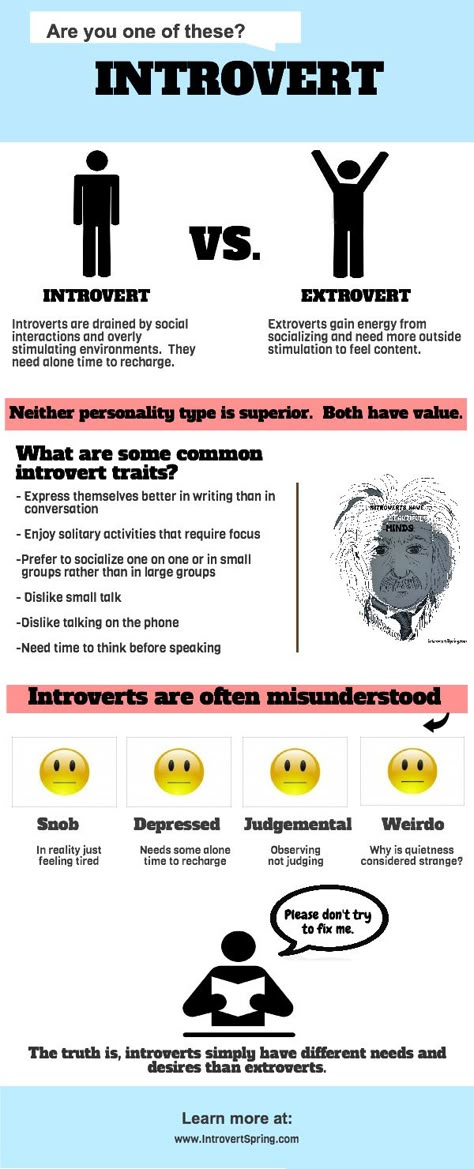
Because introverts tend to get overlooked and misunderstood, they’re often full of great ideas that are just waiting to be put into action. If extroverts and introverts get to know what it takes to support one another, they can create a team that’s stronger than the sum of its parts. All it takes is some patience, understanding, and a willingness to appreciate the quieter side of life.
Good or bad, we’d love to hear your thoughts. Find us on Twitter (@trello)!
Introverts at work: how to make their life easier?
Career and self-realization
Psychological tests show that introverts make up one-third to one-half of the population . Susan Cain's book about their plight has sold 2 million copies. The TED lecture, which outlines the main ideas of the book, has collected more than 14 million views. And for the first time, Carl Gustav Jung drew attention to the difference between introverts and extroverts back in 1921.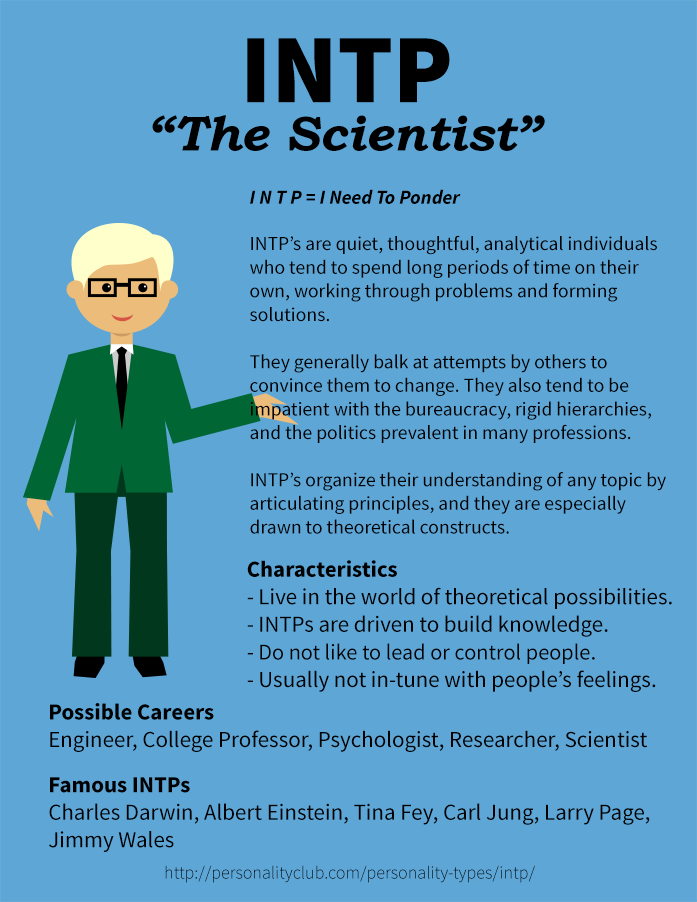 But every day the conditions for introverts in the work environment are only getting worse.
But every day the conditions for introverts in the work environment are only getting worse.
Aggressive environment
The main culprit for this deterioration is the vogue for office "open space" and so-called group work. Business leaders believe that in a world where computers do a lot of routine work, innovation is the elixir of growth. But from this fair premise, they draw the false conclusion that the best way to boost creativity is to tear down office walls and keep meetings running non-stop.
Thinking this way is wrong for a number of reasons. This judgment is based on a hackneyed comparison of intellectual and physical barriers between people. It does not take into account the fact that noise and distractions make it difficult to concentrate.
Extroverts do get their energy from other people. But introverts need time alone to recharge. Companies forget this too often!
Inconspicuous leaders
The recent fashion for "hyper-connectedness" of everyone with everyone also reinforces prejudice against introverts when it comes to promotions.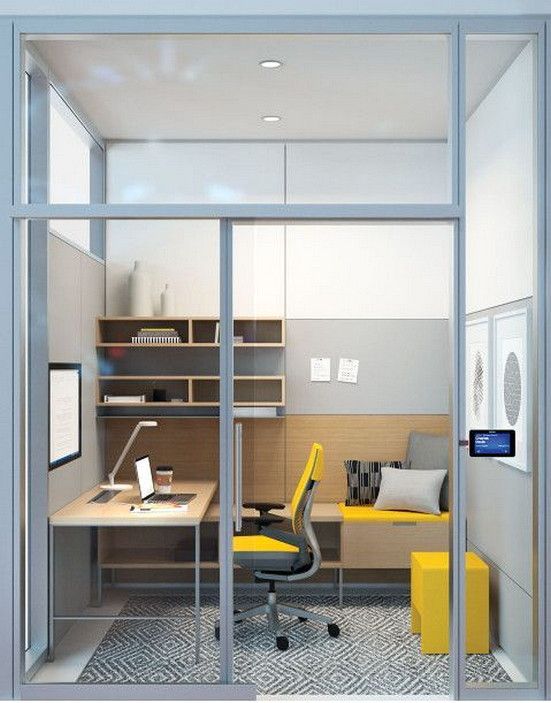 In many corporations, it is customary to equate leadership qualities with extroversion—that is, with the desire to project your self outward, shake hands, and rant in front of an audience. This means that the ideal manager is Donald Trump.
In many corporations, it is customary to equate leadership qualities with extroversion—that is, with the desire to project your self outward, shake hands, and rant in front of an audience. This means that the ideal manager is Donald Trump.
However, management guru Jim Collins shares an observation that the longest-serving CEOs in their field are generally quiet and even inconspicuous people. They put their company above their own "I" and often keep a low profile.
Bill Gates or Mark Zuckerberg are introverts who would have a hard time staying afloat in an extroverted culture it's hard to stay afloat in IBM's extroverted culture, with its corporate anthems and strong emphasis on team spirit. By hurting employees like them, firms overlook or marginalize potential leaders.At all levels of the corporate hierarchy, this leads to the fact that the abilities of employees are not fully used.
Adapting working conditions
How can companies improve the lives of introverts? At the very least, provide them with individual space and quiet areas for relaxation.
And recognize that introverts bring their unique skills to work. In meetings, they talk less, but their words make more sense.
Leaders will have to look at their companies through the eyes of an introvert . How often do large meetings take place in the organization, where the loudest ones have an advantage? This leads to the marginalization of introverts. Are new hires selected based on how they present themselves in interviews? Because of this, those who know how to work, but do not know how to present themselves, go unnoticed.
The most astute leaders have already begun to meet these challenges. Amazon has made its meetings more focused. Each of them begins with silence: those present read a six-page text on the topic of the meeting. This shifts the focus from the behavior of people in the audience to the discussion of what they have read.
Google has moved away from focusing on interviews and is focusing more on how they perform on tests, whether it's coding or solving technical problems.
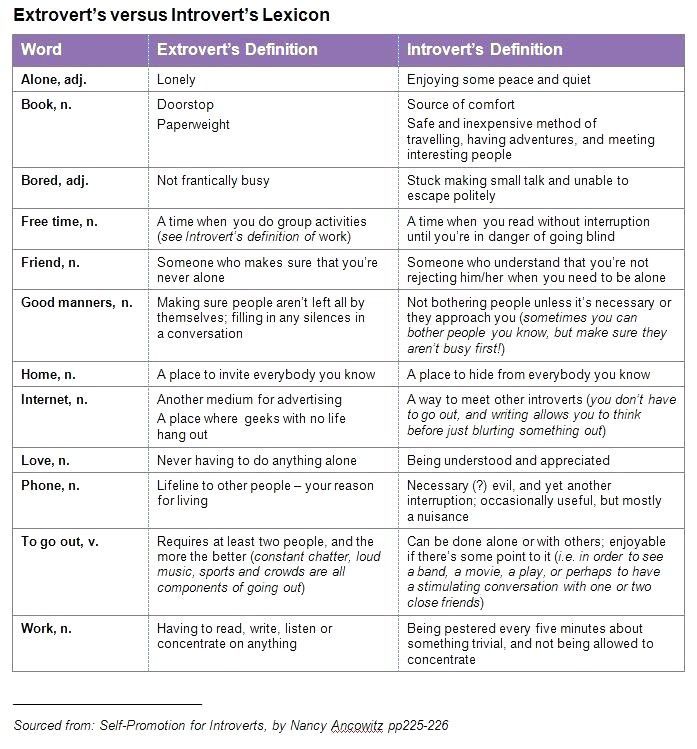
Building a team
Of course, managers are not up to date with all scientific achievements in the field of personality typology. But it would be useful for them to know how teams are created and how groups of people interact with each other. If employees must simply follow orders, then extroverts will do better with management. But if employees must think for themselves, then introverted leaders are more successful.
Introverts have to work harder to adjust to corporate life because work is primarily a social interaction. They find it easier to communicate using the keyboard than in meetings. But instead of avoiding meetings entirely, it's better to have small meetings, as this is necessary for moving up the corporate ladder.
Introverts who have reached career heights are usually able to behave like extroverts at least part of the timeIntroverts at the top of their careers tend to be extroverted at least part of the time, says Carl Moore of Montreal's McGill University, who interviewed 200 CEOs on the radio show.
The former head of the Canadian State Railways, Claude Mongeot, set himself the goal of acting like an extrovert five times a day.
Most of humanity is located on the introversion-extroversion scale somewhere in the middle between the extreme marks of . Carl Moore suggests that "quiet" people can have just as much impact on the world as true extroverts, if only they have time to reset. He challenges his students to "communicate and relate like an introvert" or "communicate and relate like an extrovert" to empower them.
Enlightened management of the future
Business has long been dominated by the extrovert ideal, because that’s how corporate fashion has been set up for decades—whether it’s the 1950s model, when an employee asserted himself in an organization by defending his point of view in meetings and in a team, or the current obsession with instant communicative response. Susan Kane writes about this in her book.
Fortunately, some trends are directed in the other direction.
The technology industry, that is, the industry where there are especially a lot of introverts, has facilitated remote communication. The purpose of enlightened management is not to push an extrovert-oriented company towards introverts. It's about building a new type of company where introverts, extroverts, and everyone in between have an equal opportunity to thrive professionally. An ambivert organization, let's call it that.
The article mentions the book by S. Kane “Introverts. How to use the features of your character” (MIF, 2014), as well as thoughts from the book by J. Collins “From good to great” (MIF, 2016).
Text: Daria Gromova Photo credit: Getty Images
New on the site
Four-day work week: how the new routine changes the lives of employees - shocking findings from scientists
Midlife crisis for men: how to survive without loss and grow as a person
How do you know if you are a narcissistic victim?
Flight and temptations: why teenagers start using drugs.
Top 10 Reasons
“I constantly compare myself to my friends and feel inadequate. What to do?"
Equivalent to 10 cigarettes a day: how loneliness is killing us - the findings of scientists
How to quickly find contact with a new person: non-obvious advice from an expert0003
A stranger among friends
At school, teachers encourage those who often raise their hand; In addition, everyone likes sociable people, but not closed ones.
We hope that our article will make life easier for those who are uncomfortable even at the prospect of being the soul of a company of strangers, and will be useful for those who consider introverts to be arrogant, eccentric and even asocial personalities and do not hesitate to speak loudly about it out loud.
A third of the population
It is generally accepted that there are at least 25–30% of pronounced introverts in the world. A third of humanity certainly can not be on the sidelines. They work, live and study together with sociable, noisy, cheerful, aggressive people.
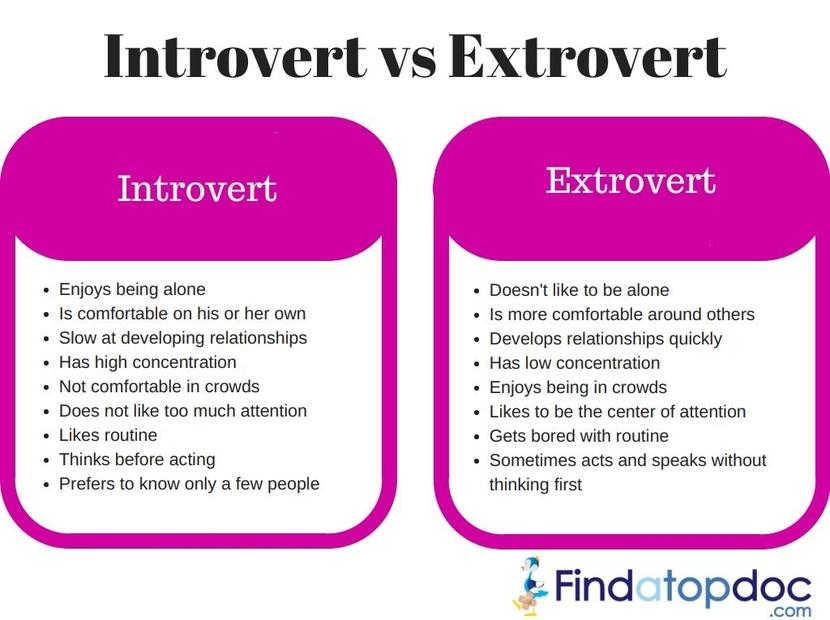
In the office, introverts find themselves in rather painful conditions for them: open spaces, endless meetings, corporate parties and endless birthdays of colleagues, employees' children, and the like. What is left for them? Reconcile? Tolerate?
According to psychologists and HR specialists, everything is not so scary for introverts, or rather, it is not scary at all if you make some effort.
An important condition
Do not try to change yourself (and by the way, extroverts, do not try to change the introvert), because the personality type is not changed. Come to terms with who you are and set yourself up to make your life as productive and comfortable as possible without changing your essence.
An attempt to change one's character and inclinations too often leads to a deep inner conflict, frustration, and in Russian realities also to alcoholism.
Do not forget that many great and even just successful people are introverts.
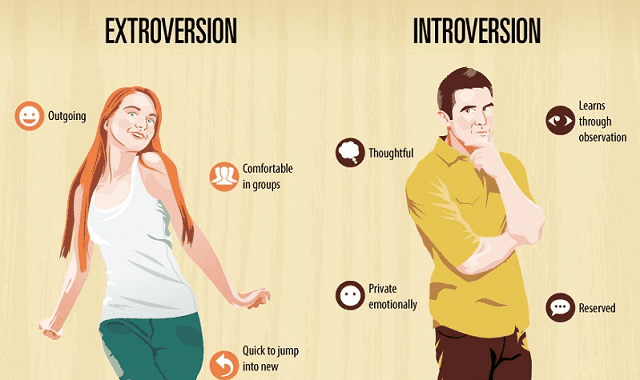
Advantages of introverts
Introverts have a lot of inherent qualities that are unique to them, which can easily be turned into advantages that allow you to achieve career and success:
- are able to plunge deeply into the task - without distraction and with enthusiasm;
- notice the smallest details, observant and attentive;
- often more empathic, sensitive, sensitive towards others - easily feel the change of moods;
- tend to enter into a strong and lasting relationship;
- more independent of other people's judgments and will;
- able to calculate the consequences of actions and decisions, excellent strategists;
- do not like to argue and prove their case;
- are better at expressing thoughts in writing than extroverts;
- can easily perform leadership functions, if they are not required to constantly present themselves.
Also, introverts often look mysterious, calm and self-confident, which attracts other people to them, especially the opposite sex.
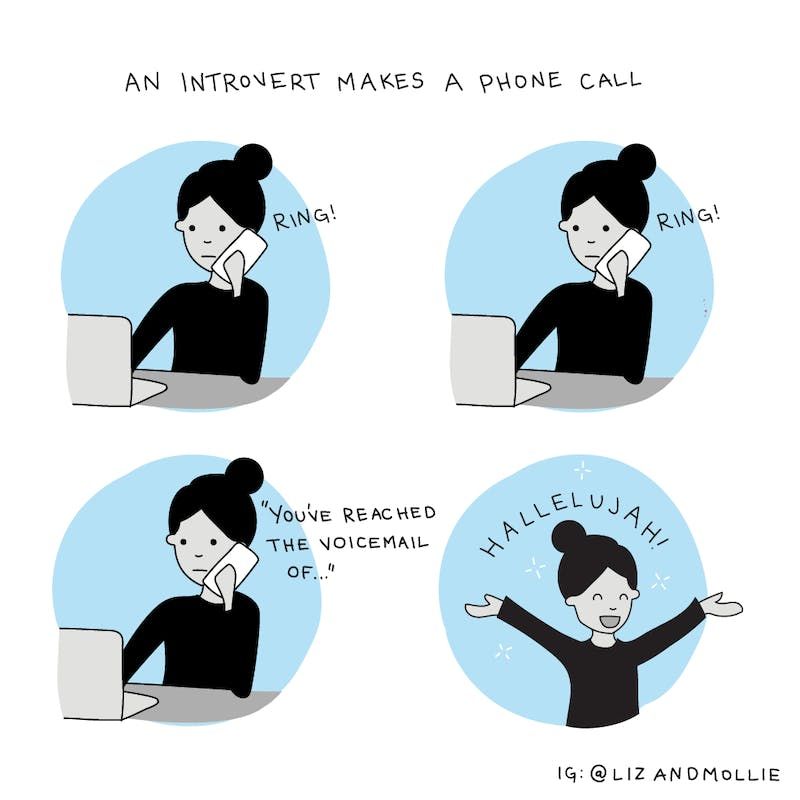
Rules for Survival and Success
Having understood his strengths and weaknesses, an introvert can begin to master the surrounding living space, guided by his internal structure.
Summarizing what was said by a dozen personnel officers and psychologists, we can offer the following list:
Make warning . In a new team, it is best for an introvert to immediately warn others about the peculiarities of their character. This will give him an indulgence for possible communication problems. For example, if an introvert is called out, but he does not answer immediately, it is easy to attribute it to his psychological type, without being known as unfriendly, withdrawn, strange.
Simulate normal behavior . An introvert, in fact, does not owe (and it often seems to him that this is exactly what is expected of him) to be the soul of the company, he just needs to create a sense of his presence and participation in office life.
Hence a few very simple rules.
Greet everyone in the office in a friendly manner, calling people by name whenever possible.
- During a break in work, spend some time moving around the office space to light up. At the same time, it is far from always necessary to communicate with someone. Just be. People will get used to the introvert as part of the everyday landscape. And that's enough.
- Get to know two or three colleagues better and exchange a few words with them in the hallway, in the kitchen, in the smoking room.
Use social media to communicate informally with colleagues and management . In reality, an introvert does not like to flaunt himself.
Another thing is Facebook or Instagram. In social networks, communication is a voluntary thing, and you can interrupt it at any time. This is the safest way for introverts to show their personality or even professionalism.
By making your accounts available to colleagues and management, you can achieve professional and personal recognition without having to be active in office life and work meetings.
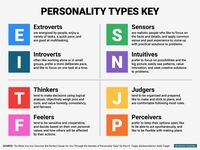
Psychologists have repeatedly tested the owners of well-known blogs and, as a rule, they turned out to be gifted introverts who turned out to be specialists in some issues, excellent photographers, jokers and essayists.
Play inconspicuous but important roles at office, corporate events . An introvert is not obliged to try to make toasts and be at the forefront of congratulations, but he can actively participate in the organization and preparation - bring and bring various important goods - gifts, flowers, alcohol, etc. Help set the table and decorate the room.
During the event, there is one unique and infinitely beneficial role for an introvert - the photographer. You don't need to communicate with anyone. You don't have to participate in anything. Only shoot. But then the whole office will see these photos, and the whole office will know who took the pictures. The permanent role of the photographer-observer allows to avoid any form of publicity at the events.
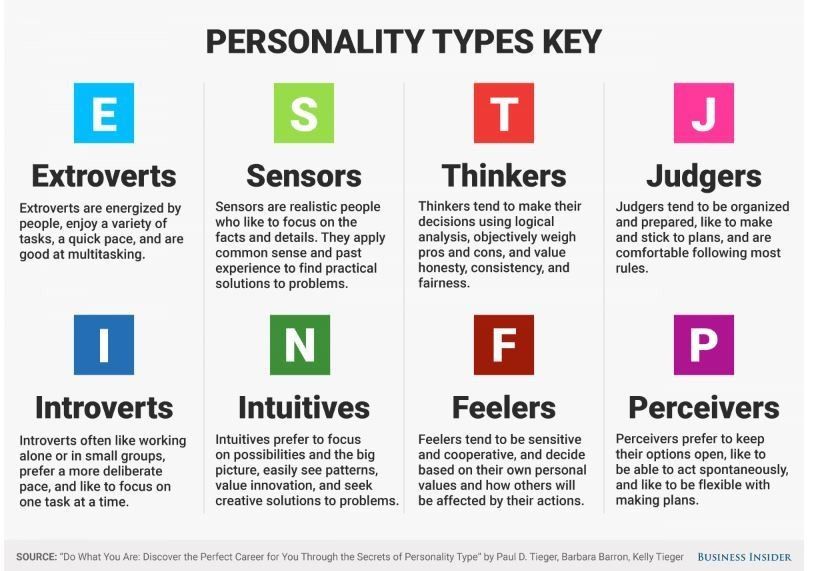
An introvert's workplace is a very important element of adaptation . If it is possible to influence the choice of your location, you should not choose a place where colleagues passing by or sitting next to you can see what is happening on the computer screen, what the hands are doing on the table and the legs under the table.
And another very important element - headphones . It can be just soundproof headphones or headphones with music or some soothing sounds - the sea, forests, etc. It's a matter of taste.
A quiet, secluded place is necessary for those who do not find peace in the workplace . It can be some kind of remote and rarely visited toilet, an empty meeting room, an abandoned corridor, just a window sill in the stairwell, etc.
Even five minutes in complete solitude allows you to recover well from the abundance of people and unnecessary information that fills the office space.
Create an image of a thoughtful professional .
You can pass off your own characteristics, and almost any, for the specifics of the work of a professional: I need to think it over, it's not easy, don't be in a hurry etc. This language is usually well-known and used by corporate programmers, system administrators, website programmers working in the company.
Create an image for yourself of the original artist . In some offices, it is enough to dress somewhat unusually (wear a hat, scarf, earring, bright tie, original-looking shoes) and organize a creative mess in the workplace.
Build personal connections instead of actively participating in collective action . Instead of noisily dominating and participating in discussions, you can build personal connections with people that will be valued even more than the ability to speak frequently on various occasions. For example, at a meeting you can remain silent, and then calmly discuss the issue with the leader in the smoking room, corridor or his office.
So the introvert will look even more serious and thoughtful person. The same is true with colleagues. Discussing work and personal issues with them tete-a-tete is the path to trust.
Become the manager of . Based on the same principle, a career takes on a special attraction for an introvert.
Introverts, despite their peculiarities, can be excellent managers and leaders. They often have a strategic view of things. If an introvert becomes a leader, he decides many things himself according to his own device and idea of \u200b\u200bcomfortable work.
And by the way, managers don't usually sit in open spaces!
If your colleague is an introvert
1. Make appointments in advance . If this is not possible, at least warn about the arrival. It is difficult for an introvert to communicate with strangers, and sometimes familiar people. This does not mean at all that he does not know how to do it, he just needs more time to get together and be ready for communication.
![]()
2. Use alternative telephone communication methods . Introverts often avoid telephone conversations and - consciously or not - ignore calls. It is very difficult for him to call somewhere and ask someone, sometimes painfully.
Fortunately, scientific and technological progress does not stand still: instant messengers, e-mail and CRM systems are a great solution not only for introverts.
3. Do not demand immediate decisions and reactions from introverts . The fact that they do not answer you immediately does not mean that the introvert is stupid, or lazy, or unwilling to talk. Usually an introvert just needs time to think about the answer.
4. Feel free to ask again. Often the perception of an introvert is very different, and he may mean some things a little differently.
5. Evaluate an introvert not by oddities, but by the results of his activities . From the point of view of others, some introverts behave strangely.
![]()
Learn more
